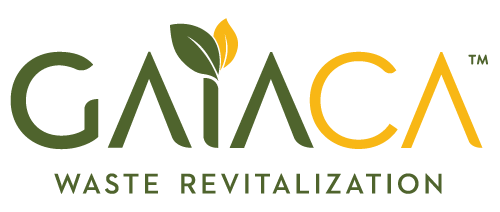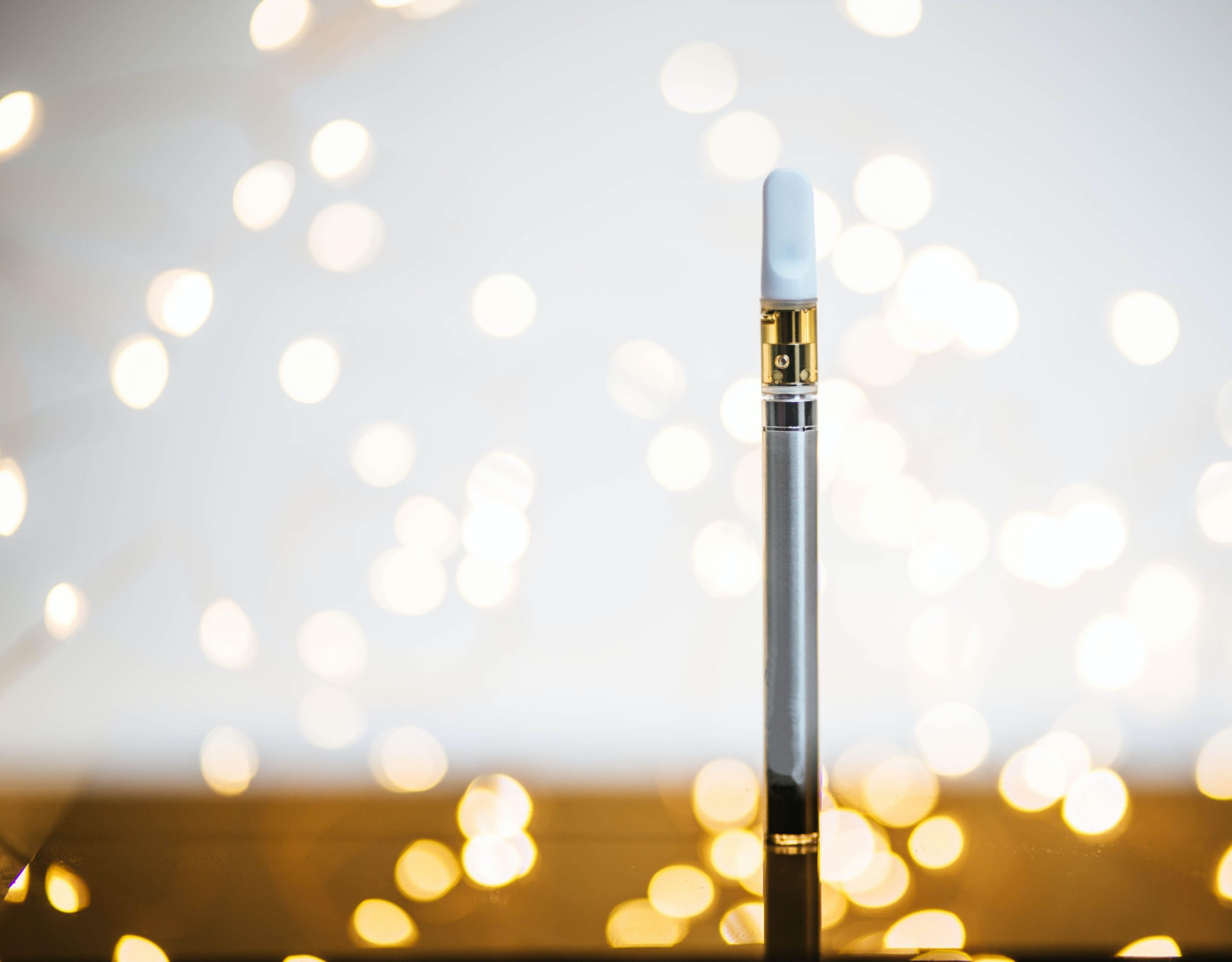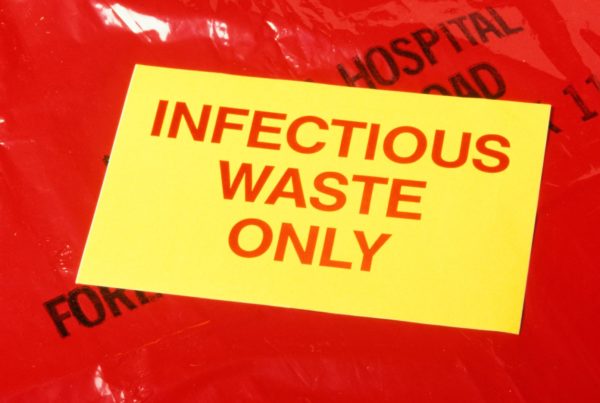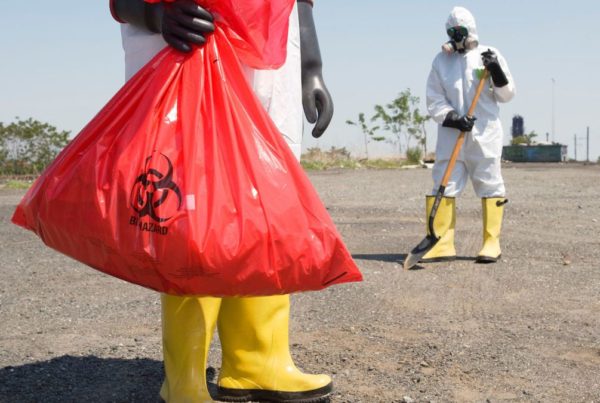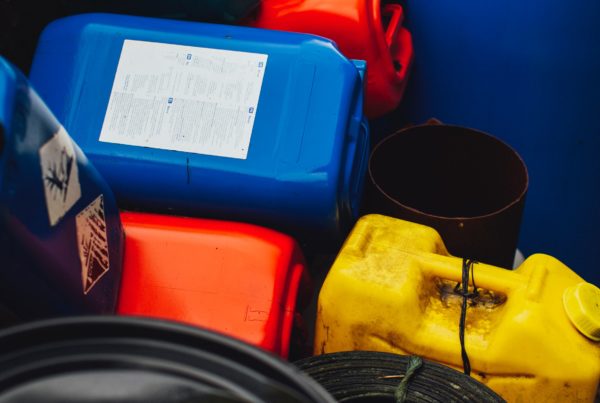It’s not just conventional cigarettes that are polluting our landfills. Disposing of your vape batteries correctly is one of the most important things you can do as a cannabis user or business owner. While vape pens certainly do save rolling paper (and trees), simply tossing the pen in the trash after use can have disastrous consequences for the environment as well as human health.
About Lithium-Ion Batteries
First used in Sony camcorders in the early 1990s, lithium-ion batteries have revolutionized energy storage and use. Unlike your standard AAA battery which uses zinc and manganese oxide, Li-ion batteries use graphite and lithium cobalt oxide to store a large amount of charge in small battery cells.
Because these batteries are so quick and easy to recharge, they are used in a wide range of everyday devices, including:
- Cell phones
- Tablets
- Laptops
- Cameras
- Vape pens
- Electric cars
While these rechargeable batteries are extremely efficient and can be charged and discharged several hundred times, they still eventually need to be replaced. That’s why it’s important to know how to dispose of your vape batteries correctly.
The Consequences of Improper Disposal
The components of lithium-ion batteries are great when they’re inside your device. However, they can be toxic and even dangerous when they make their way into the environment. That’s why hazardous cannabis waste management is essential for ensuring the proper disposal of most batteries.
Consider the following situations:
Fires
Placing lithium-ion batteries into the general trash or recycling bin is a leading cause of fires. Just imagine: You put a vape pen in the recycling bin thinking that the plastic, glass, and metal can be recovered. Then, that vape pen is loaded onto a recycling truck that’s filled with paper and cardboard.
Under pressure, rising heat, and/or physical perforation, the electrolyte inside the battery ignites and sets all of that paper and cardboard (as well as plastic) on fire. This, in turn, sends toxic smoke up into the air, wastes all of the recyclable goods, destroys the transportation vehicle, and endangers the driver.
A similar thing can happen when vape products are sent to landfills. Batteries can catch on fire or explode, burning the surrounding waste and sending clouds of highly toxic fumes into the air. All of the methane (a potent greenhouse gas) that was being generated underground is released, compounding the environmental impact of the waste.
Water and Soil Poisoning
Lithium-ion batteries contain lithium, cobalt, carbon, and graphite, as well as electrolyte fluid and solvents. While these materials are not as toxic as the components of alkaline batteries (mercury, cadmium, and lead), they can still poison soil and waterways and endanger the health of the people and animals who live nearby.
The greatest impact on soil and water is at the sites where lithium and cobalt are mined. Pollution from cobalt mining in the Democratic Republic of Congo has been linked with birth defects and breathing difficulties. Child labor is also frequently involved. Lithium extraction can poison local waterways and threaten aquatic life.
Unfortunately, ongoing demand for lithium is leading to the opening of new mines—frequently on indigenous cultural sites and/or in the middle of fragile ecosystems. If this continues, deep-sea mining for lithium extraction will even become necessary, and we can only wonder about the damage this will cause.
The Best Battery Recycling Options
For all of the above-mentioned reasons, we need to recycle batteries. Fortunately, there are several organizations that offer battery recycling and can help you make your cannabis use more environmentally friendly.
Your Local Dispensary
Many dispensaries collect used disposable vape pens and/or vape-pen batteries as part of a zero-waste initiative and may even offer incentives for return. Through GAIACA’s vape pen recycling program, more than 20 million vape pens so far have been treated on-site and transported to recycling centers where the components were recovered for reuse.
The Manufacturer
Many e-cigarette manufacturers and vape manufacturers accept the return of their used devices and/or the battery on the device. Locate the contact details of the manufacturer of your device to ask whether they recycle batteries and how these should be packaged for return.
Participating Retail Stores
Electronic retail stores often accept electronic waste—including batteries—for recycling. Best Buy is one example of a chain retail store that offers a battery recycling program. The next time you head to your local shopping center or mall, keep an eye out for stores that offer this service.
Municipal Waste Programs
Municipalities use tax money to provide local waste collection services, including collections and drop-off events for electronic waste and hazardous substances like paint. GAIACA works with various municipal Household Hazardous Waste (HHW) facilities to provide recycling services for their consumer vape pen/battery drop-off program. Look up your municipality website or contact your municipality directly to find out which services are available in your area.
Recycling Centers
If you have a recycling center nearby, you could take your used lithium batteries directly for recycling. Some recycling centers may charge a small fee to accept the goods, which is used to cover the costs of separating, processing, and repurposing the hazardous components. It is important to keep in mind that if there are still residuals of cannabis-containing oil/THC present in the device, regulation may restrict transportation and recycling. It is best to contact a Cannabis Waste Management Company, like GAIACA, to discuss proper handling.
If All Else Fails…
If you live hundreds of miles away from any of these drop-off points and don’t want a pile of batteries building up (as they may catch fire), you will need to process the batteries yourself:
- Discharge each battery completely and allow them to cool.
- Submerge them in cold salt water for a full two weeks, covered with a secure lid.
- Wrap them in a newspaper and put them in the trash.
The aim of this process is to make the electrolyte fluid safe so that the batteries won’t explode or ignite. Remember that ignition is the main risk of improper disposal.
One additional note: While we’ve focused our attention largely on vape pens, many of the same protocols apply to disposable e-cigarettes. Treat your lithium-ion e-cigarette batteries just as you would your vape pen batteries. And if you have plastic e-liquid bottles (or liquid nicotine bottles) and cartridges for your e-cig, you can recycle those normally. Just make sure to first rinse any remaining residue from bottles.
The Safe Disposal Option: Recycle Your Vape Batteries
It’s not just conventional cigarette butts that are polluting our landfills. The lithium-ion batteries inside vape pens constitute hazardous waste that needs to be properly disposed of in order to protect the environment. Consumers, manufacturers, dispensaries, municipalities, and waste management companies must work together to make this happen.
The easiest way to recycle hazardous waste from vape pens is to find the appropriate recycling option. Reach out to a Cannabis Waste Management expert, like GAIACA, to discuss available solutions near you. If no such program is available, discharge and soak the batteries for two weeks before throwing them in the trash.
While it may take a little extra effort to gather your e-waste and take it to the store, this small action could save the lives of child workers, recycling-truck drivers, aquatic animals, and ecosystems, and ensure that there’s enough lithium to continue making vape pens long into the future.
